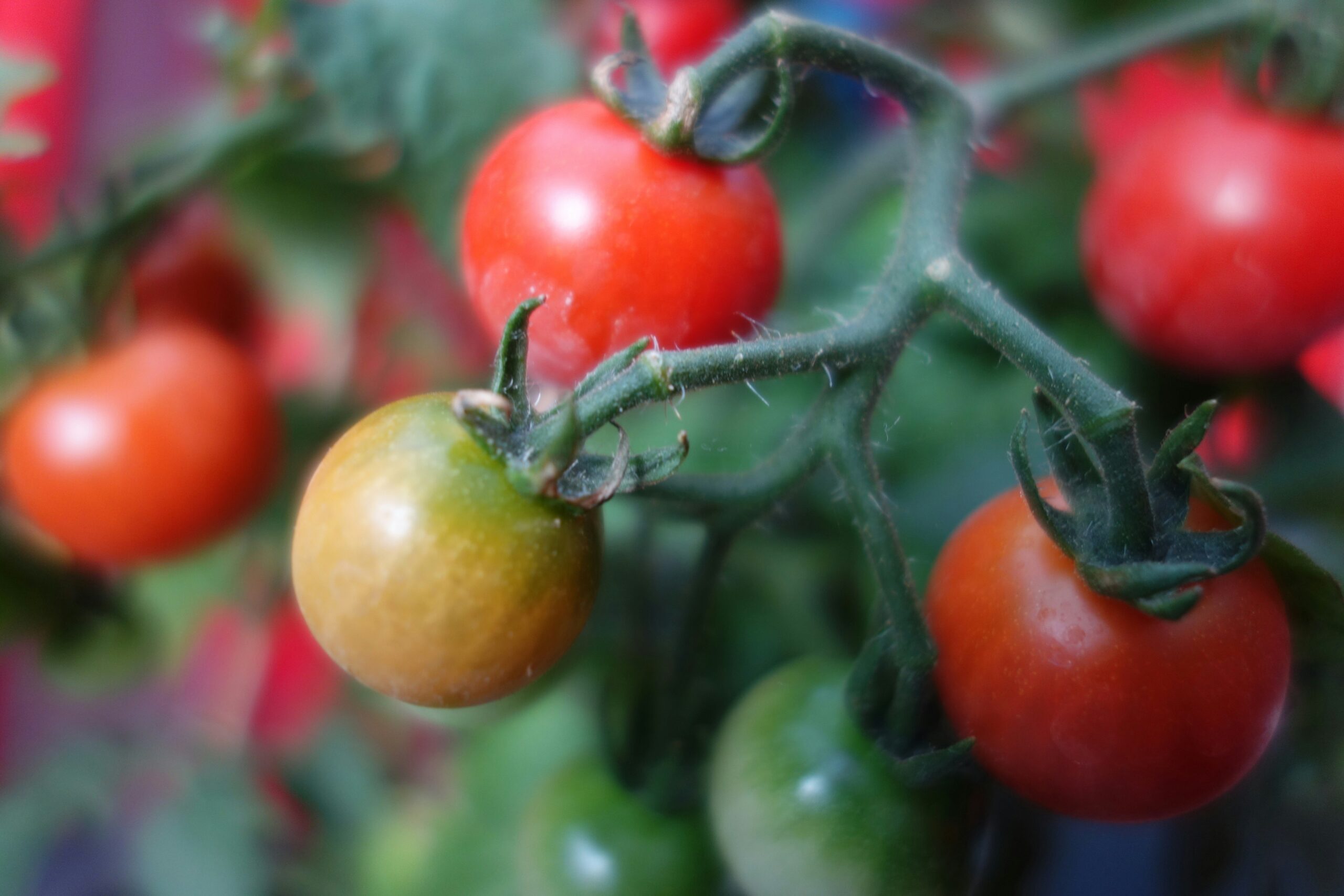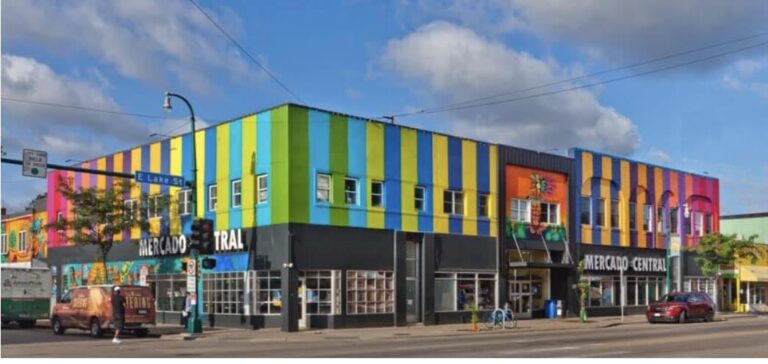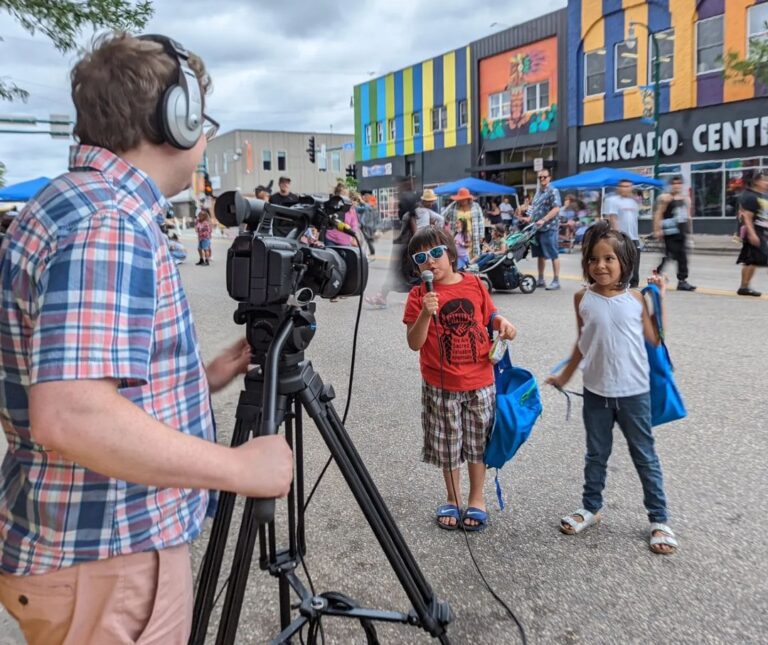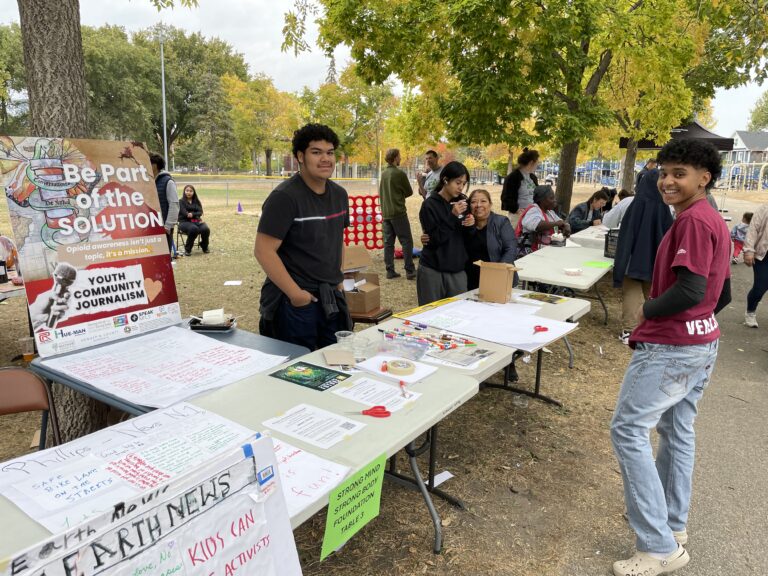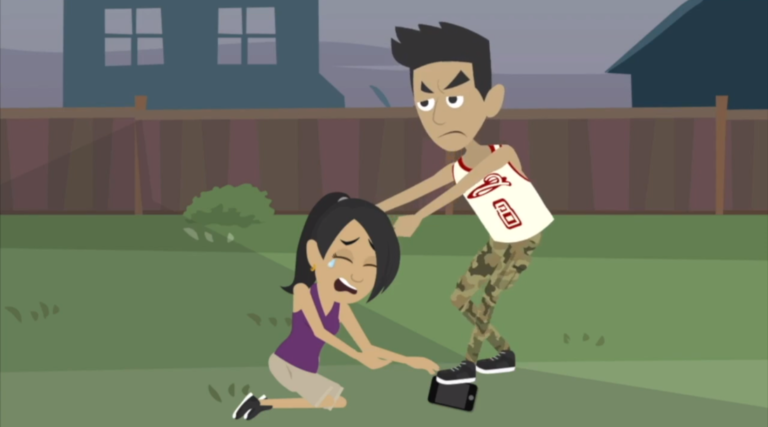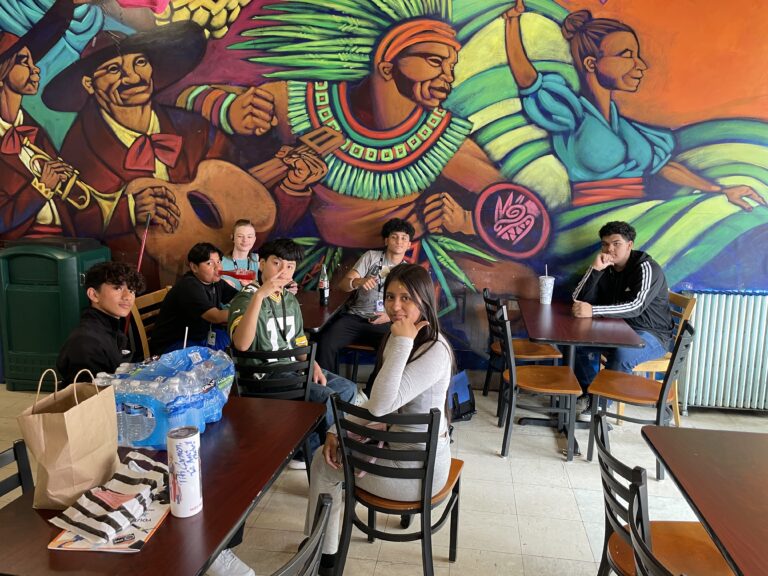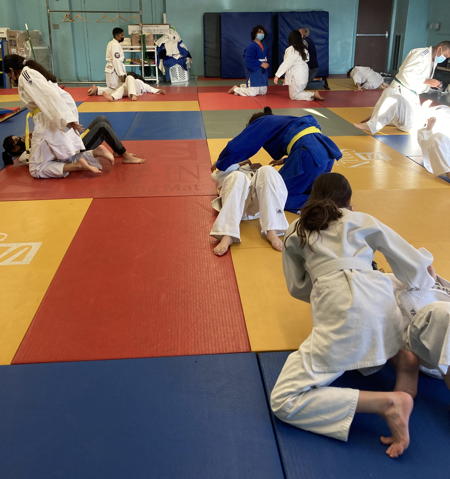How Food Can Build Health, Wealth, and Social Change
Food has power.
The January episode of “Youth Community Journalism” looked at how food can be used as a tool to build health, wealth, and social change.
Youth Community Journalism — Episode 7: The Power of Food
Guests:
Princess Titus, Appetite for Change and Standard Edition Women cofounder
Cole Depierre, Sisters Camelot kitchenbus coordinator
Jimbo Lovestar, The Institute for Men’s Health and Well-Being founder
Youth community journalists (ages 10-16) from the Strong Mind Strong Body Foundation’s Youth Community Journalism Institute led the production at St. Paul Neighborhood Network (SPNN) in St. Paul, Minnesota.
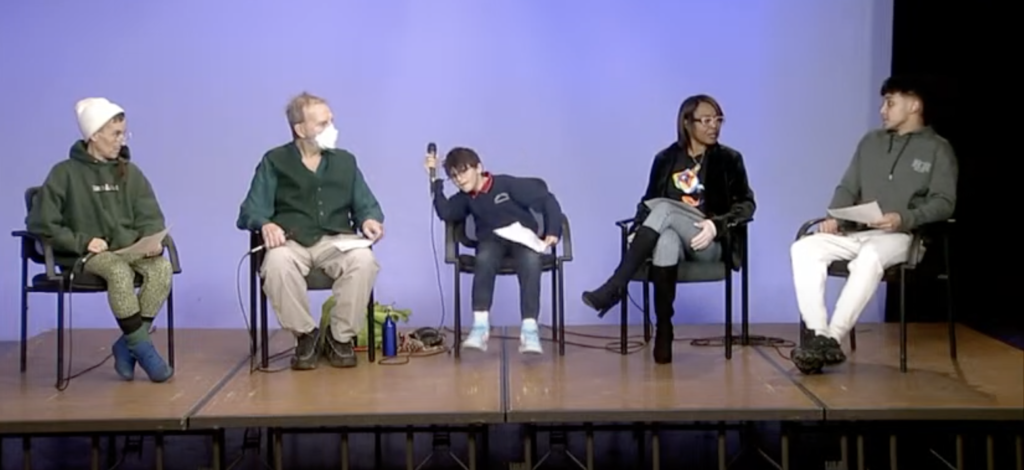
This show, and all youth community journalism programming at the Youth Community Journalism Institute, was produced in partnership with Conversaciones de Salud, a monthly digital and print magazine published by Carmen Robles and the premier media partner of the Strong Mind Strong Body Foundation.
“Food is power,” said Princess Titus. “I believe that food has the power to bring people together across cultures, across socio-economical separations, and zip codes and things that we celebrate. I think food is the tie that binds us.”
Jimbo Lovestar has been raising his own food without pesticides since 1980. By preserving his own produce, he has been able to eat an excellent quality diet year-round for very little money. He has been teaching classes on food preservation since 1985.
“I want to see my neighbors raising food in their yard,” says Jimbo Lovestar, the founder of The Institute for Men’s Health and Well-Being and a north Minneapolis resident. “I want to see gardens up and down [the city]. I’ve had a garden in my yard for 32 years so I want to see other people picking up on that.”
“I want to see community gardens on empty lots. I want to see community gardens in city parks. There are a few. I want to see people working together to feed themselves and each other. Allowing people allowing. When people raise their own food, the sense of empowerment that’s down inside is, how to put it, it can’t be denied. It’s so incredible and deep to raise your own food.”
Not everyone has access to food. According to Feeding America, hunger affects over 500,000 people in Minnesota, including more than 180,000 children. In 2024, Minnesotans visited food shelves a record 9 million times. That’s an increase from 7.5 million visits in 2023, which was a 2 million increase from 2022.
“Anyone can relate to the feeling of scarcity,” says Depierre. “That feeling of scarcity is a fundamental groundwork for the sort of things that we don’t want to have happen in our lives. It’s kind of the root of almost all things that go wrong. We just aren’t getting the things that we need, let alone want. … Food is such an essential component to our everyday life, and so if we feel scarcity, scarcity around food, it can really be detrimental to people’s ability to function on every level.”
Community gardens can ensure that no one goes hungry.
The Youth Community Journalism Institute at the Strong Mind Strong Body is developing a community gardening program. We also have partnered with the Minneapolis Parks and Recreation Board and will be working together to support their community gardening program, which has 11 community garden locations managed by MPRB, seven future community garden sites, and four gardens on MPRB-owned land.
To expand our reach, we will be making a documentary on community gardening with our youth community journalism team and professional filmmakers.
We want to help more people have their own food.
As part of our community garden program, the Youth Community Journalism Institute will be starting our own garden. The first foods we grow will be tomatoes, tomatillos, onions, cilantro, and hot peppers to make our own salsa, which we will sell as part of the entrepreneurial arm of our community journalism program.
The benefits of gardens go beyond food.
Gardens also can help reduce global warming by reducing carbon emissions, improving water management, lowering urban temperatures, improving air quality, and increasing plant biodiversity.
Food is fuel. Food is medicine. Food is life.
And life begins the day you start a garden.
Support the Strong Mind Strong Body Foundation’s Youth Community Journalism Institute. The Strong Mind Strong Body Foundation is a nonprofit 501(c)(3) private foundation. All donations are tax-deductible. Any donation, big or small, is appreciated. You can make a donation here.
